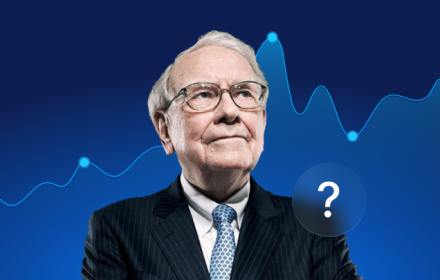The best books on investing pave the way to understanding how money ceases to be just a medium of exchange and becomes a tool for capital growth. Financial markets may seem chaotic until a systematic approach based on professionals’ experience and data analysis emerges. The right literature helps avoid random decisions, see the strategy, and build a sustainable path to wealth.
The Foundation of Sound Financial Investment
Every novice investor faces an abundance of advice, but not everyone can distinguish noise from useful information. Investment literature forms the foundation: explaining how stocks, bonds, index funds work, and why discipline and strategy are more important than quick decisions.
Warren Buffett, in his letters to Berkshire Hathaway shareholders, demonstrates the power of long-term thinking. Peter Lynch, in the book “One Up on Wall Street,” shows how a private investor can analyze companies better than analysts, using observations from everyday life. Such works develop financial literacy and teach to see opportunities where most only see prices on the screen.
Strong Ideas for Beginners
The best books on investing for beginners explain complex mechanisms in simple language. Benjamin Graham’s “The Intelligent Investor” has become a fundamental textbook for millions of investors. Graham teaches to distinguish speculation from investing, analyze fundamental indicators, and preserve capital during market turmoil.
Burton Malkiel, in “A Random Walk Down Wall Street,” debunks the myth of predicting the market’s ability and shows statistics: over 80% of active funds underperform index solutions in the long run. This approach shapes a rational view and helps avoid errors based on emotions.
Psychology and Strategy
An investor’s behavior influences the outcome as much as asset selection. The best publications reveal psychology: fear and greed lead to mistakes, especially in highly volatile markets. Daniel Kahneman, in “Thinking, Fast and Slow,” explains cognitive biases that lead to violating one’s own strategy.
John Bogle, founder of Vanguard, in the book “The Little Book of Common Sense Investing,” shows the power of simplicity: an index fund reduces costs and allows capital to grow for decades. This approach has proven its effectiveness in any market dynamics.
Practice of Portfolio Approach
A resilient portfolio requires a balance between stocks and bonds. The best books on investing explain in detail how to allocate assets, consider risk, and rebalance the structure. Rick Ferri’s “All About Asset Allocation” reveals the simple mathematics of diversification: a combination of developed market stocks, fixed-income bonds, and index funds reduces volatility by 20-30% without sacrificing long-term returns.
Capital allocation models are also used by large pension funds. This approach confirms that capital investment requires systematic risk management, not trend guessing.
Modern Tools and New Markets
The digital era has opened up new opportunities. The best books on investing analyze cryptocurrency, technological companies, and global ETFs. Chris Burniske, in “Cryptoassets,” dissects blockchain principles, as well as the risks and volatility of digital assets. The author explains why cryptocurrency remains a high-risk segment requiring strict capital management strategy.
Simultaneously, John Bogle and Burton Malkiel remind of the importance of costs: even a 1% annual commission reduces the final return by tens of thousands of dollars in long-term financial investments.
The Influence of Reading on Financial Decisions
Regular study of professional literature shapes the thinking necessary for confident capital management. The best books on investing create an intellectual filter: allowing to distinguish noise from facts, choose a strategy, and maintain composure during market fluctuations.
Such reading helps to see long-term trends: the rise of index investing, the spread of ETFs, technological transformation of exchanges, and the influence of psychological factors on mass investor behavior.
Best Books on Investing: What Every Investor Should Read
A strong investment strategy starts with reliable knowledge, not random advice. This list brings together books that shape an investor’s thinking and help make informed financial decisions.
To build a library that helps take action, it is worth including trusted sources:
- “The Intelligent Investor” – Benjamin Graham: fundamentals of company valuation and capital protection.
- “One Up on Wall Street” – Peter Lynch: finding undervalued stocks through observations.
- “A Random Walk Down Wall Street” – Burton Malkiel: statistics and efficiency of index funds.
- “The Little Book of Common Sense Investing” – John Bogle: passive wealth growth strategy.
- “Thinking, Fast and Slow” – Daniel Kahneman: psychology of decision-making.
- “Cryptoassets” – Chris Burniske: understanding cryptocurrencies and risk management.
- “Common Stocks and Uncommon Profits” – Philip Fisher: evaluating business quality and management.
These works provide a comprehensive understanding of how the market operates, from company analysis and psychology to modern digital assets. By studying them, a novice can develop their own strategy, avoid common mistakes, and act more confidently in any conditions.
 en
en  ru
ru  de
de  ar
ar  es
es  hi
hi  fr
fr  nl
nl  it
it  pt
pt  el
el 









